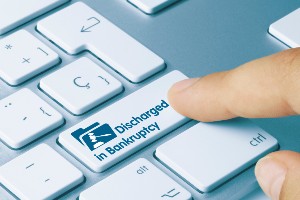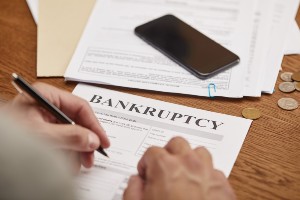
How Does the Bankruptcy Discharge Work?
In bankruptcy, discharge means you are no longer legally obligated to repay your creditors. They receive money from the liquidation of your estate, but beyond that, you owe them nothing. As long as you meet your bankruptcy obligations, including filing your petition, completing the financial management courses, and attending your 341 Meeting, you’ll receive the discharge.
In most Chapter 7 bankruptcy cases, it takes about four months to receive your discharge. In Chapter 13, you receive the discharge once your payment plan is complete, which takes three or five years.
At the time of discharge, the bankruptcy court clerk sends written notice to the bankruptcy trustee, the trustee’s attorney if there is one, and your creditors. This is the notification to your creditors that they can no longer pursue collection of the debt, in or out of court. If they do, they are at risk of being held in contempt of court.
Under no circumstances can a creditor legally pursue the collection of a debt once it’s discharged. If this occurs, you have a right to take legal action.
What Debts are Dischargeable in Chapter 7 Bankruptcy?
Not every type of debt is dischargeable.
Debts typically included in a bankruptcy discharge include:
- Credit card debt
- Medical bills
- Payday loans
- Past-due utility bills
- Past-due rent
Some tax debts and some student loan debts are also dischargeable. However, in both cases, the process is more complicated and you’ll need to discuss your specific situation with your attorney.
What types of debts are not dischargeable?
- Child support
- Alimony
- Non-fraudulent lawsuit judgments
- Money borrowed from some retirement accounts
- Current tax debts
- Gambling debts
If you’d like to learn more about the difference between dischargeable and non-dischargeable debts, check out this information from Nolo.com.
Why Is It Important to Work with a Bankruptcy Law Firm?
Every case is different so it’s important to discuss your situation with an experienced bankruptcy attorney. If your biggest or most challenging debt is non-dischargeable, don’t dismiss the idea of filing. Even if you are not able to discharge a debt in bankruptcy, filing could free up income to put toward non-dischargeable debts.
Bankruptcy gives you a fresh start. It lightens your financial load and gives you time to evaluate your situation. It’s the right choice for many people facing drastic situations that could result in the loss of their homes or other assets. Understanding bankruptcy law basics helps you determine if filing is something that could help you or if you’d be better off pursuing other options of financial relief.
To learn more about bankruptcy or to schedule a consultation with an experienced bankruptcy attorney, contact the Law Office of Robert M. Geller at 813-254-5696 to schedule a free consultation.



























![Signs That You May Need to File Bankruptcy [Infographic]](https://djml3wkzi26ea.cloudfront.net/wp-content/uploads/2021/01/signs-chap7-v-chap13.jpg)
![How To File for Bankruptcy [Infographic]](https://djml3wkzi26ea.cloudfront.net/wp-content/uploads/2020/07/bankruptcy-steps-infographic-web.jpg)










